| کد مقاله | کد نشریه | سال انتشار | مقاله انگلیسی | نسخه تمام متن |
|---|---|---|---|---|
| 4269836 | 1610860 | 2014 | 10 صفحه PDF | دانلود رایگان |
IntroductionSexual dysfunction has only recently been recognized as a highly prevalent side effect of adjuvant aromatase inhibitor (AI) therapy for breast cancer.AimsA cross‐sectional survey using standardized measures of female sexual function was designed to provide a detailed view of sexual problems during the first 2 years of adjuvant AI therapy and secondarily to examine whether sexual dysfunction leads to nonadherence to this therapy.MethodsQuestionnaires were mailed to all 296 women in a breast oncology registry who had been prescribed a first‐time AI for localized breast cancer 18–24 months previously.Main Outcome MeasuresItems assessed medication adherence, demographic, and medical information. Scales included the Female Sexual Function Index, the Menopausal Sexual Interest Questionnaire, the Female Sexual Distress Scale‐Revised, the Breast Cancer Prevention Trial Eight Symptom Scale to assess menopausal symptoms, and the Merck Adherence Estimator®.ResultsQuestionnaires were returned by 129 of 296 eligible women (43.6%). Respondents were 81% non‐Hispanic white with a mean age of 63 and 48% had at least a college degree. Only 15.5% were nonadherent. Ninety‐three percent of women scored as dysfunctional on the Female Sexual Function Index, and 75% of dysfunctional women were distressed about sexual problems. Although only 52% of women were sexually active when starting their AI, 79% of this group developed a new sexual problem. Fifty‐two percent took action to resolve it, including 24% who stopped partner sex, 13% who changed hormone therapies, and 6% who began a vaginal estrogen. Scores on the Adherence Estimator (beliefs about efficacy, value, and cost of medication) were significantly associated with adherence (P = 0.0301) but sexual function was not.ConclusionsThe great majority of women taking AIs have sexual dysfunction that is distressing and difficult to resolve. Most continue their AI therapy, but a large minority cease sexual activity. Schover LR, Baum GP, Fuson LA, Brewster A, and Melhem‐Bertrandt A. Sexual problems during the first 2 years of adjuvant treatment with aromatase inhibitors. J Sex Med 2014;11:3102–3111.
Journal: The Journal of Sexual Medicine - Volume 11, Issue 12, December 2014, Pages 3102–3111
